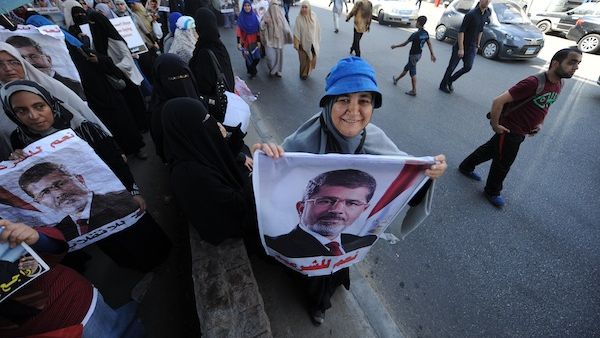Washington’s muted response to the political crisis in Egypt has raised questions about whether the United States still enjoys significant leverage over its pivotal Arab ally.
The Obama administration is treading a fine line when it comes to Egypt, which plunged into political turmoil four weeks ago. Washington is seen trying to balance between a need to maintain the long-established security arrangements with the Egyptian army and a commitment to democratic values it claims to espouse globally.
Washington refused to label the military-led overthrow of President Mohammad Morsi as a coup.
Describing that as a coup d’état will require the U.S. government to cut off its estimated $1.5 billion aid to Egypt. Most of the money goes to the military, which is responsible for making sure that the border with Israel is secure.
The U.S. federal law clearly says that non-humanitarian aid must be suspended if the “government of any country whose duly elected head of government is deposed by military coup d’état or decree or, after the date of enactment of this Act, a coup d’état or decree in which the military plays a decisive role.”
On Wednesday, a proposal by Senator Rand Paul to cut off U.S. aid to Egypt failed following a vote of 86-13 in the Senate, lending support to an argument that Washington will have more leverage over Cairo if the cash continues to flow.
The New York Times quoted Dennis B. Ross, a former Middle East adviser to U.S. President Barack Obama, as saying that if the U.S. cuts off its aid to Egypt, it would waste the only leverage card it has over the country.
“There will inevitably be a backlash against us and in a way that will leave us with no influence,” Ross was quoted as saying. “We should not put ourselves in a position of being irrelevant or without any influence given our stakes.”
But with the billions of dollars Egypt has received from oil-rich Gulf countries, another argument suggests that the U.S. no longer holds significant influence over Egypt.
Jeffrey Martini, a civil-military relations expert at the RAND Corporation, argues against the idea the U.S. enjoys major influence on Egypt through its financial assistance.
“This view overstates what the U.S. can accomplish by threatening to withhold aid. For starters, U.S. aid to Egypt pales relative to the $12 billion in aid the Arab Gulf states of Saudi Arabia, the United Arab Emirates, and Kuwait have pledged to Cairo over the past few days,” he wrote in an op-ed published on the Christian Science Monitor website.
Paul Sullivan, an international security expert at Georgetown University, argues that the United States has leverage over Egypt through means beyond simply direct financial aid.
“The United States still has leverage via the military equipment that Egypt has. Much of it is American or based on American technology. Much of the military training is on such equipment. There are many important military equipment maintenance and maintenance training contracts,” Sullivan told Al Arabiya English.
More importantly, he added, are the personal and professional relationships developed over long periods between high-ranking military officials in brotherly countries.
But even on the economic front and despite the billions flowing in from the Gulf, America can still wield major influence on Egypt.
“The United States also has leverage via many of our oil companies and other companies that invest in the country. One of the biggest is Apache oil. Apache has also done a lot to build schools, build relations with communities and more,” Sullivan added.
“There is a huge potential to develop better economic relations via business to business developments. If U.S. industry can invest much more in Egypt over the long run, given that it is hard to see this happening in the near future, many more Egyptians could find jobs and better standards of living,” Sullivan said.
By Mustapha Ajbaili










